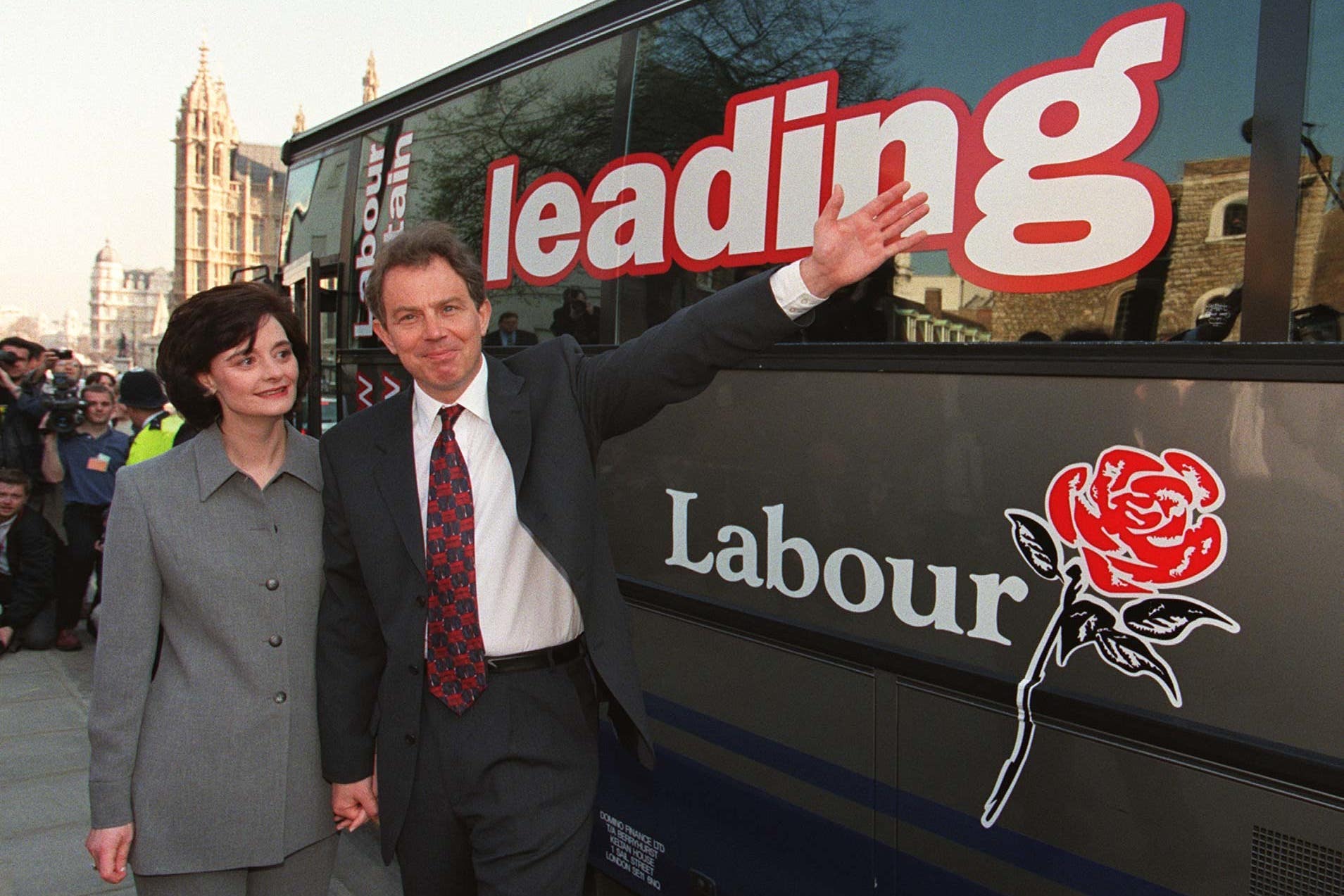No 10 wanted a prime ministerial battle bus for Tony Blair, records show
Newly-released files show officials argued a dedicated bus could be a more efficient way of supporting the PM on regional visits.

Downing Street officials wanted to acquire a permanent prime ministerial battle bus to support Tony Blair on his visits around the country, according to newly-released government files.
Campaign battle buses, hired by the political parties on a temporary basis, had long been a feature of general elections.
But papers files released by the National Archives show that in February 2000, No 10 officials suggested it could become a permanent arrangement.
One official, Owen Barder, said it could be fitted with secure telecoms, including fax and email, as well as TV with a video recorder and a high volume photocopier, with space for the prime minister to change clothes or to consult advisers.
The amount of equipment we set up at each location adds to the public impression of a travelling circus rather than an efficient and lean machine
Following a tour of the West Country, he argued that it could be more efficient than booking hotel rooms at every stop and fitting them with secure communications so staff could work.
“The present arrangement by which a comms engineer from the Cabinet Office sets up secure communications in the overnight hotel is expensive and inflexible,” he wrote.
“Several hotels in the South West have benefited from additional facilities being installed at our expense this week as we changed our plans about where we were staying overnight.
“The day is characterised by frantic rushing to and from the vehicles with heavy bags of portable equipment.
“The amount of equipment we set up at each location adds to the public impression of a travelling circus rather than an efficient and lean machine.”
The idea was, however, greeted with some nervousness, amid concerns about the likely public reaction.
On official noted “OK to scope very privately” adding that it was “not a large priority”. It appears that the idea did not progress any further.
Bookmark popover
Removed from bookmarks